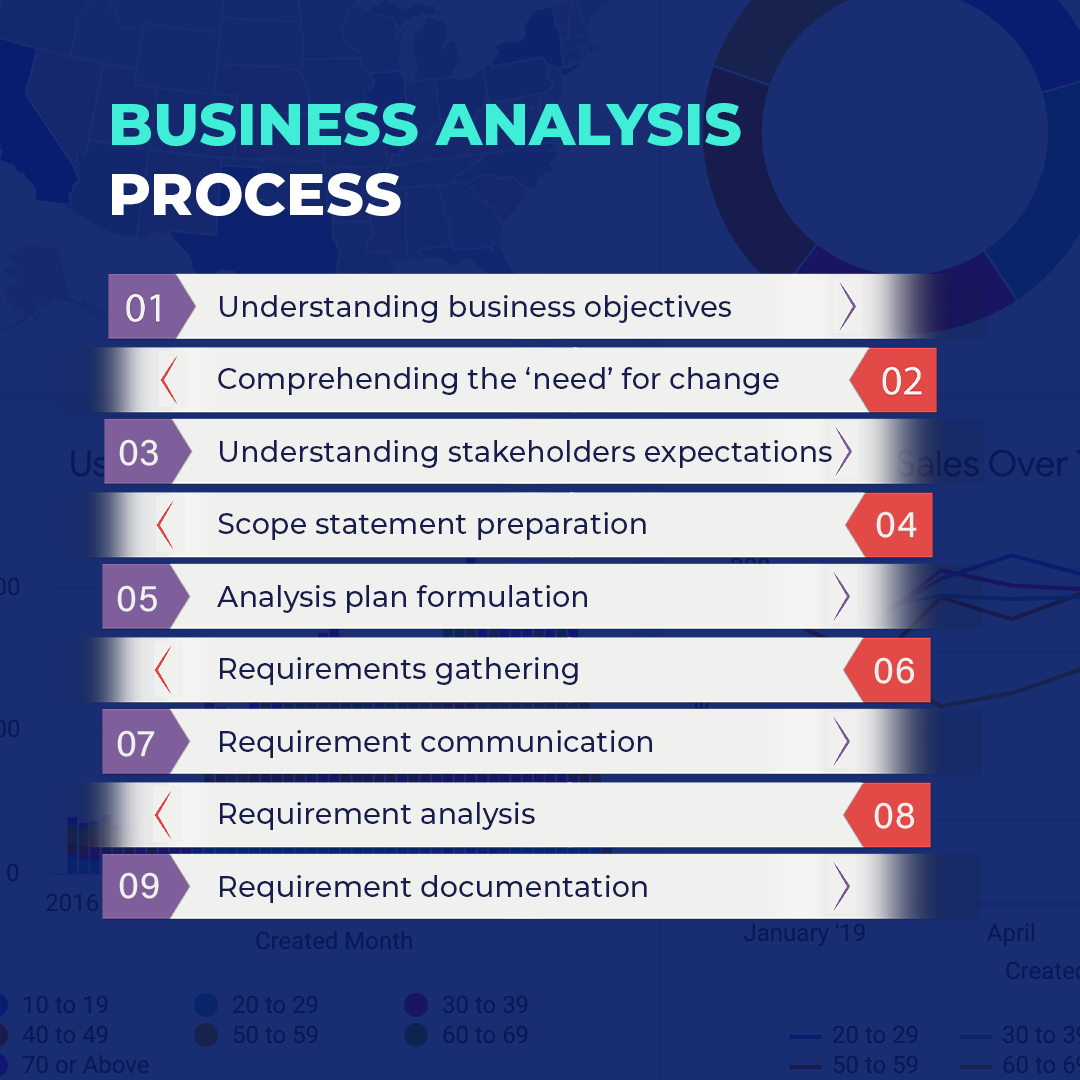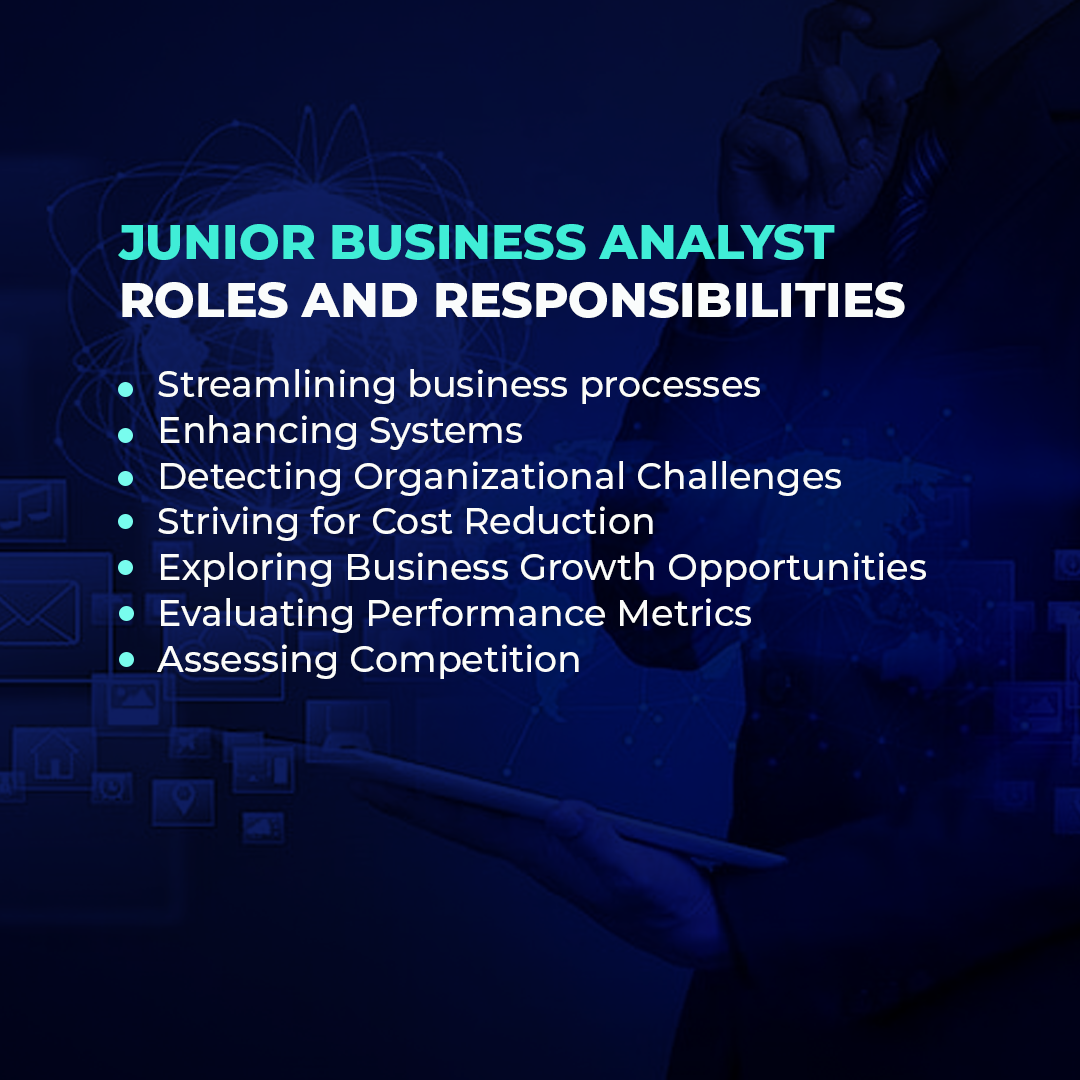A Junior Business Analyst often serves as the bridge between business needs and IT solutions, ensuring that both sides work harmoniously towards the organization’s goals. Their role is vital in interpreting business requirements, understanding their challenges, and translating them into actionable IT strategies.
Let’s delve deeper into the multifaceted world of a Junior Business Analyst, exploring the responsibilities, required skills, and potential career trajectory in this dynamic field.
What is a Junior Business Analyst?
A Junior Business Analyst is an entry-level position in the field of business analytics. These individuals are typically part of a larger team working under the guidance of a Senior Business Analyst or manager.
The primary focus of their work revolves around gathering and interpreting data, identifying trends and patterns, and providing actionable insights to improve business operations and strategies.
Their role involves a blend of business acumen, data analysis, and communication skills, making it a dynamic and challenging position that can offer a strong foundation for a career in business analytics.

Explore the Qualifications Needed to Become a Junior Business Analyst
Educational Background
Bachelor’s Degree: A Bachelor’s degree in a relevant field such as Business Administration, Finance, Economics, Information Technology, Computer Science, or a related discipline is commonly preferred or required by employers.
Certifications
Certified Business Analysis Professional (CBAP): While not mandatory for a junior role, earning a CBAP certification from the International Institute of Business Analysis (IIBA) can greatly enhance your credibility and marketability.
Entry Certificate in Business Analysis (ECBA): This certification, also from IIBA, is specifically designed for individuals who are new to business analysis.
Experience
Internships: Interning in roles related to business analysis, data analysis, project coordination, or similar functions can provide valuable hands-on experience.
Entry-Level Positions: Working in entry-level positions like data analyst, research assistant, project coordinator, or assistant business analyst can help build relevant experience.
Projects or Case Studies: Engaging in projects or case studies during your academic program or in your free time can showcase your practical skills.
Roles and Responsibilities of a Junior Business Analyst
Requirements Gathering
- Collaborate with stakeholders to gather and document business requirements for projects, systems, or processes.
- Conduct interviews, workshops, and surveys to elicit detailed requirements from various stakeholders.
Documentation
- Create clear and comprehensive requirement documents, user stories, use cases, and process flow diagrams.
- Maintain accurate and up-to-date documentation throughout the project lifecycle.
Data Analysis
- Analyze data to identify trends, patterns, and insights that can drive business decision-making.
- Assist in creating data models and defining data requirements for reporting and analytics.
Process Analysis
- Evaluate existing business processes to identify inefficiencies and areas for improvement.
- Propose solutions for optimizing processes to enhance productivity and effectiveness.
Communication
- Serve as a bridge between technical and non-technical stakeholders, translating business needs into technical requirements and vice versa.
- Communicate effectively through presentations, reports, and documentation.
Quality Assurance
- Collaborate with development teams to ensure that the final product meets the documented requirements and specifications.
- Participate in testing and validation processes to ensure the solution aligns with business needs.

Support Project Management
- Assist project managers in creating project plans, timelines, and status reports.
- Track project progress, identify potential risks, and suggest mitigation strategies.
Stakeholder Management
- Build and maintain relationships with stakeholders, including end users, subject matter experts, and technical teams.
- Act as a point of contact for clarifying requirements and addressing concerns.
Training and User Support
- Assist in creating user documentation, training materials, and user guides.
- Provide support to end users during implementation and post-implementation phases.
Data Visualization
- Create visualizations and reports using tools like Excel, Tableau, or Power BI to convey insights from data analysis.
- Present data-driven findings in a visually appealing and understandable manner.Common
Articles you may like:
Business Intelligence vs Business Analytics
Business Analyst vs. Data Analyst: This or That
Skills Needed for Successful Junior Business Analysts
Analytical Skills
- Ability to analyze data, identify patterns, and use these insights to generate business solutions.
- Proficient in using data analysis tools and software.
Problem-Solving Skills
- Aptitude for identifying, investigating, and resolving problems efficiently.
- Capability of using logic and reasoning to propose suitable solutions.
Communication Skills
- Excellent written and verbal communication skills for presenting insights and ideas.
- Ability to communicate technical information to non-technical audiences.
Technical Skills
- Familiarity with project management tools, data visualization tools, and Business Intelligence software.
- Understanding of database management systems, SQL, and statistical analysis.
Business Acumen
- Understanding of business operations and processes.
- Ability to adapt to the changing needs of a business.
Collaboration Skills
- Ability to work effectively within a team and collaborate with multiple stakeholders.
- Proficiency in managing and resolving conflicts.

Highlight the Benefits and Challenges of Being a Junior Business Analyst
Benefits
- Learning opportunities.
- Skill development.
- Industry insights.
- Career progression.
- Networking.
- Exposure to tools and technologies.
- Contribution to business solutions.
- Team collaboration.
- Innovation and creativity.
Challenges
- Limited experience.
- Changing priorities.
- Communication complexity.
- High expectations.
- Complex problem-solving.
- Scope creep.
- Limited autonomy.
- Documentation demands.
- Managing expectations.
Conclusion
Embarking on a career as a Junior Business Analyst can be both rewarding and challenging. The role provides ample opportunities for learning, skill development, and industry exposure, acting as a stepping stone to more advanced roles in the future.
Despite the challenges, such as managing changing priorities and high expectations, the benefits outweigh the difficulties.
With continuous professional growth and the right set of skills, you can navigate this demanding role and carve out a successful career in the arena of business analysis.

